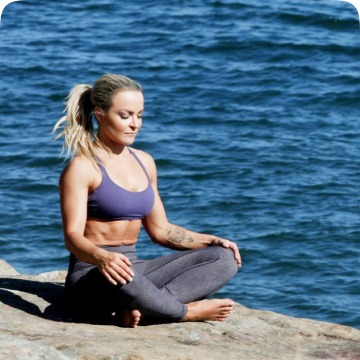What are habits and are yours serving you?
The american journal of psychology describes a habit as,“A fixed way of thinking, willing, or feeling acquired through previous repetition of a mental experience.”
Our lives are made up of a series of habits. Some are essential to our day to day living. A lot of our habits aren’t essential to our lives but feed our desire and numb us from feeling what is at our deepest core disturbance. Those habits can then end up stifling our growth and keep us in old, stuck holding patterns of thinking and feeling.
Habits and beliefs have a cycle of a reminder, routine and reward. An example of a bad habit; you’re having an argument with your partner (reminder) and you know there’s something you say that really gets up their grill, you’ve said it many times before and you’ve gotten the same reaction (routine) each time, you want to get that same reaction from your partner because it re-confirms in your mind the negative mental loop you tell yourself “he’s such an asshole” and when he reacts as he always does your habit of thinking men are assholes is etched deeper into your subconscious mind (reward).
Ok that’s one of my not so constructive habits! We all have them though right? But it is up to us as conscious human beings to break this habit of reacting from our mammalian brain (the yogis call this the lower mind or ‘manas’) and learn to respond from our conscious human brains (known as ‘buddhi’, the discerning, discriminating mind).
If there’s something you’re wanting to change in your life, whether it be a weight issue, a lack of love and connection in your relationships, or maybe it’s to stop being as reactive, usually starting by breaking a daily habit involved with this intention will help you to move forward to whatever it is you want to change in the bigger picture.
Here are my top 3 tips for creating change and shifting out of bad habits:
Observe in the present
Sounds easy right? But no so. Our modern world creates a lot of distraction; phones, social media and these ideas of ‘to do’ lists that keep us running after our tail. By stopping for just a few seconds, taking a deep breath we can re-centre ourselves and rather than reacting, on autopilot and instinct (that might be grabbing that snickers bar when we feel anxious or yelling at our partner or child when we’re triggered), we can give ourselves space and the opportunity to respond from our higher brain, the neocortex. Tapping into this part of the brain takes more energy though (conscious effort!) and this is why most people find it hard to change their habits which brings me to my next tip….
Practice small and consistent
The more we practice the skill of observance in present time the more potential we have at tapping into the neocortex. This part of the brain is essential to regulate and override our emotional and instinctual reactions more effectively. I love the very common comment of “I’m not good at meditating so I don’t do it”. We try something once and it might feel uncomfortable, we react to the experience and give up. Maybe the aim was to sit and meditate for 30 mins and your expectation was that you could clear your mind and be zen after one attempt. You set the bar way too high and you’re setting yourself up for failure.
It’s great to have a big picture in mind but getting caught up in the end result usually leads to failed action rather than formation of a healthy new habit. So using the example of meditation, start with 10 mins, drop the expectation that your mind will be empty and gradually make your way from there. Or if you want to break a habit like giving up sugar try by first replacing one of those chocolate bars with a piece of fruit. When you start small you’re more likely to be consistent and repeated action is what leads to the formation of a new, healthier habit.
Add a little love to willpower
Adding a new habit is much easier than taking a bad habit out of the equation. Rather than trying to go ‘cold turkey’ with stead-fast willpower, try replacing something that you’re already doing with an intention of maitri (loving kindness) or add a new habit that has this intention behind it. For example, replace sugary sweets with fruit and as you’re eating the fruit think about how much the fruit is nourishing your body and helping you on your path to a healthier body.
Another example of loving willpower would be to add, ‘I love you dearly’ on the end of a sentence as you’re having a difficult discussion you’re having with your partner. Even if the discussion gets heated and you may insult them, by adding, ‘and I love you dearly’ taps into the higher functioning part of the brain. It’s in that moment that we have the ability to employ a “cool” cognitive system of behaviour rather than a “hot” emotional system and if you and the person on the receiving end can be present enough, you may have a different outcome and therefore creating new wiring and a new way of communicating.
The ability to successfully delay gratification does not come from a place of force but rather trusting that what we’re doing in the moment may feel less comfortable, but is for our greater good. That’s where each of our healthier choices (with an intention of love behind it) helps us move towards more productive, conscious habits, and this in turn forms the building blocks for a more productive, conscious life!
